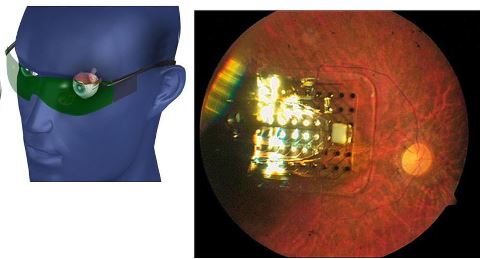 Author: Ashish Malik
Author: Ashish Malik
M.Tech (Information Security & Computer Forensics)
Email: ashishmalik10@gmail.com, ashishmalik10@yahoo.com
A heart defibrillator remotely controlled by a villainous hacker to trigger a fatal heart attack? Yes now its possible, The Government Offices have released a report warning that medical devices are vulnerable to hacking and calling for greater oversight of such devices.
The investigation into electronic medical-device safety was initiated after computer-security researchers found dangerous vulnerabilities in insulin pumps. “Even the human body is vulnerable to attack from computer hackers,” Representative Anna Eshoo, a Democrat from California, said in a statement on her website. Preventing potential hacking it might seem as simple as requiring a password for access. The operating systems that hospitals use are an even bigger challenge.
FDA reviewers expressed concern over the long-term safety of what could be the first retinal prosthesis device despite evidence that it helps improve the vision of some nearly blind patients.
Members of the FDA’s Medical Devices Advisory Committee will vote Friday on whether to recommend approval of the Argus II Retinal Prosthesis device. Members of the ophthalmic panel also will discuss and recommend possible post-approval study requirements should the device ultimately gain FDA clearance.
The Argus II is designed for use by patients with severe to profound retinitis pigmentosa, who experience progressive vision loss, often leading to blindness.
A pioneering mobile device using cutting-edge nanotechnology to rapidly detect malaria infection and drug resistance could revolutionise how the disease is diagnosed and treated.
Around 800,000 people die from malaria each year after being bitten by mosquitoes infected with malaria parasites. Signs that the parasite is developing resistance to the most powerful anti-malarial drugs in south-east Asia and sub-Saharan Africa mean scientists are working to prevent the drugs becoming ineffective.
This is a preview of Rapid malaria Detection using Nanotech based Medical Device.
Read the full post (707 words, 1 image, estimated 2:50 mins reading time)
Advanced Brain Monitoring, a medical device company focused on developing and commercializing innovative devices for sleep medicine and neurology, announces that the U.S. Food and Drug Administration (FDA) has granted 510(k) clearance for Sleep Profiler. Sleep Profiler is a patient-friendly neuro-cardio diagnostic tool to assess sleep architecture and continuity.
Recently Barfi was released depicting the problems faced by the autistic people. we have seen these days many tech people coming forward to attend autistic people with the high end technologies. scientist and engineers and Georgia tech are also working for the same
This is a preview of Georgia Tech creating high-tech tools to study autism.
Read the full post (888 words, 1 image, estimated 3:33 mins reading time)
A new “smart catheter” that senses the start of an infection, and automatically releases an anti-bacterial substance, is being developed to combat the problem of catheter-related blood and urinary tract infections, scientists reported in Baltimore on August 23 at the 244th National Meeting & Exposition of the American Chemical Society.
Dipankar Koley, Ph.D., who delivered the report, said the “smart catheter” technology is being developed for both catheters inserted into blood vessels and the urinary tract.
“About 1.5 million healthcare-associated infections are reported in the United States alone each year, resulting in 99,000 deaths and up to $45 billion in extra health care costs,” said Koley.

 Author: Ashish Malik
Author: Ashish Malik



